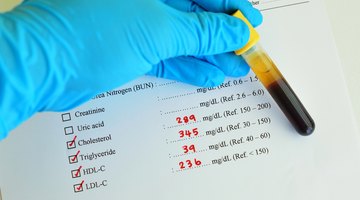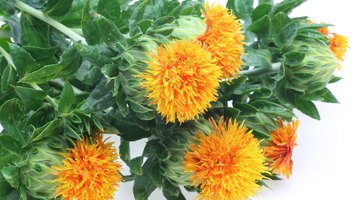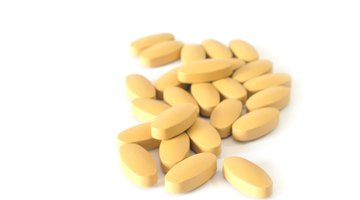Spirulina & Breastfeeding
Spirulina, a blue-green algae supplement, is sold by health and natural food stores as a potential treatment for various health conditions including heart disease, high cholesterol and diabetes. The supplement also reportedly boosts immunity and enhances mental health. Although spirulina is rich in protein, vitamins, iron and other minerals, scientific research supporting the use of the algae is limited. Consult your physician before taking spirulina or any other supplements while breastfeeding.
Lack of Research
According to the National Institutes of Health, limited research is available on the safety of consuming spirulina while breastfeeding. Nursing moms should err on the side of caution and avoid ingesting the blue-green algae.
Contamination

Kinds of Foods to Avoid While Taking Prozac
Learn More
Spirulina harvested from contaminated waters may be tainted with mercury or other heavy metals. Ingesting mercury may damage the liver and affect brain development. In addition to heavy metals, spirulina may be sullied by harmful bacteria and microcystins. Symptoms of infection include:
- liver damage
- vomiting
- thirst
- rapid heart beat and
- in rare instances
- death
Infants are more sensitive to adulterated algae supplements than are adults, according to NIH. Avoid any spirulina supplement that has not been tested for contaminants.
Phenylketonuria
Spirulina is rich in phenylalanine, an essential amino acid metabolized by the body. People who suffer from the metabolic condition phenylketonuria, or PKU, are unable to metabolize phenylalanine. The condition causes a buildup of phenylalanine levels, which may cause damage to the central nervous system, including brain damage. Avoid spirulina if you are unsure whether your newborn suffers from PKU.
Side Effects

Lysine & Breastfeeding
Learn More
Although rare, certain side effects may occur as a result of consuming spirulina. Possible side effects include muscle pain, headache, gastrointestinal problems and swelling. Spirulina may also cause a low-grade fever, according to a 1993 study published in the "Journal of Applied Phycology." While slightly elevated body temperature is not a life-threatening condition, contact your physician if you experience a high or mild fever for more than two to three days.
Warning
Although spirulina is considered nontoxic in low doses, new mothers should avoid the blue-green algae while breastfeeding. Do not spirulina supplements if you have an autoimmune disease such as lupus, rheumatoid arthritis or multiple sclerosis. The effects of spirulina may increase symptoms of these diseases. Always consult your physician before taking spirulina supplements.











